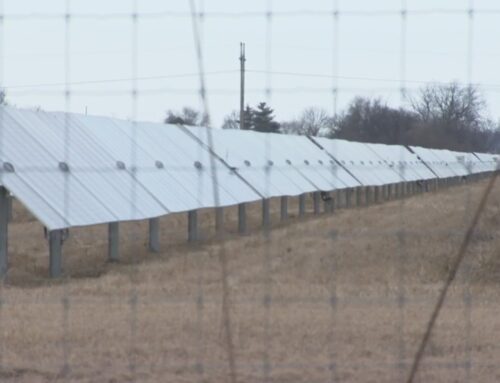Understanding and managing seasonal allergies
April 12, 2025
From sneezing to more serious reactions, Dr. Vinod Doreswamy explains how seasonal allergies work and how to manage them. Sponsored by Optum Care Washington.
SEATTLE — As seasons change, many people find themselves battling the uncomfortable symptoms of allergies. In fact, one in three adults and one in four kids experience seasonal allergies — that’s almost 100 million people.
“Allergy as we think about it, is our body’s immune response. You know, some people make an antibody, and we call them an allergy. Well, the IgG kind of antibody,” said Dr. Vinod Doreswamy, an allergy and asthma specialist with Optum Care Washington. “And, you know, people who have allergies make it to the things they’re either breathing in or eating.”
Common symptoms of seasonal allergies include a runny nose, sneezing, itchy eyes, a sore throat and even coughing. Those with asthma will start to feel congestion in their lungs, wheezing or trouble breathing.
It can be difficult to differentiate allergies from cold symptoms because their symptoms are so similiar. Dr. Doreswamy suggests tracking how you feel during high pollen months like April and May. If you the same year after year, you probably do have seasonal allergies. It might take a little longer to determine if children have seasonal allergies since it takes them a few years to develop allergies.
“With young kids they usually have either congestion, what seems like a cold, but also usually more coughing or wheezing sometimes because it gets to the lungs that much quicker,” he said. “So, then I usually think when they’re really young about indoor allergies. More or less so in seasonal allergies.”
Treatment for allergies typically includes minimizing exposure to the allergen, but there are also medications that can help.
“Usually, the framework is what you can do to minimize how much you’re breathing in the allergen,” Dr. Doreswamy said. “Second is what medicines you could take. And of course, you know, usually if none of those work or for long term, we think about allergy shots.”
If you do have seasonal allergies one big thing you can do is minimize your exposure to pollen. Whenever possible make sure to keep the windows in your house and car closed to give your body time to recover from the pollen exposure. Wearing masks and using internal circulation in your car can also help further filter the air you’re breathing.
Dr. Doreswamy also recommends showering and changing clothes when you come home and wash your pets if they have been outside.
To learn more, head to Optum Care Washington’s website.
Sponsored by Optum Care Washington
Segment Producer Rebecca Perry. Watch New Day Northwest 11 a.m. weekdays on KING 5 and streaming live on KING5.com. Contact New Day.
Search
RECENT PRESS RELEASES
Related Post




